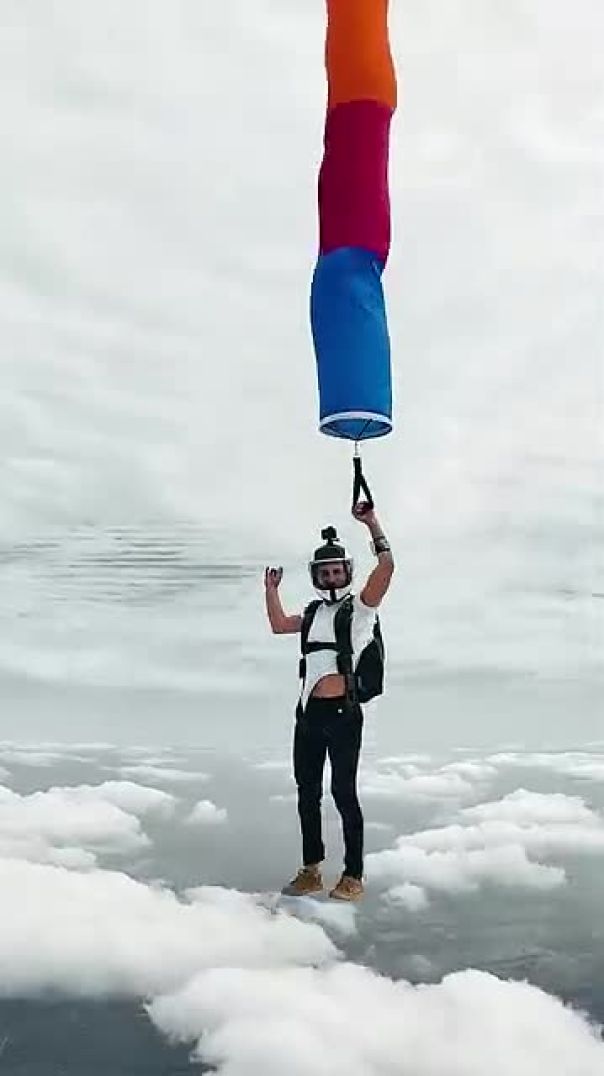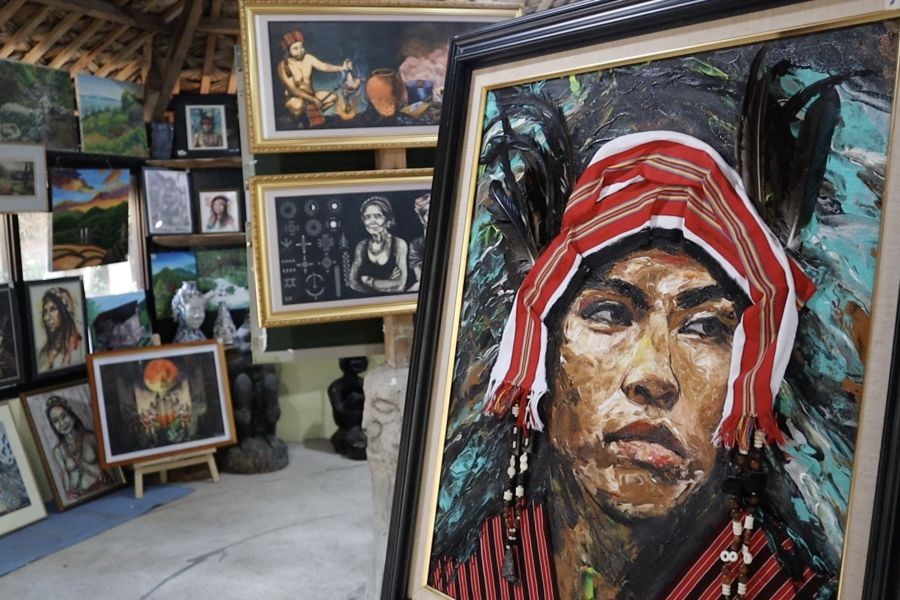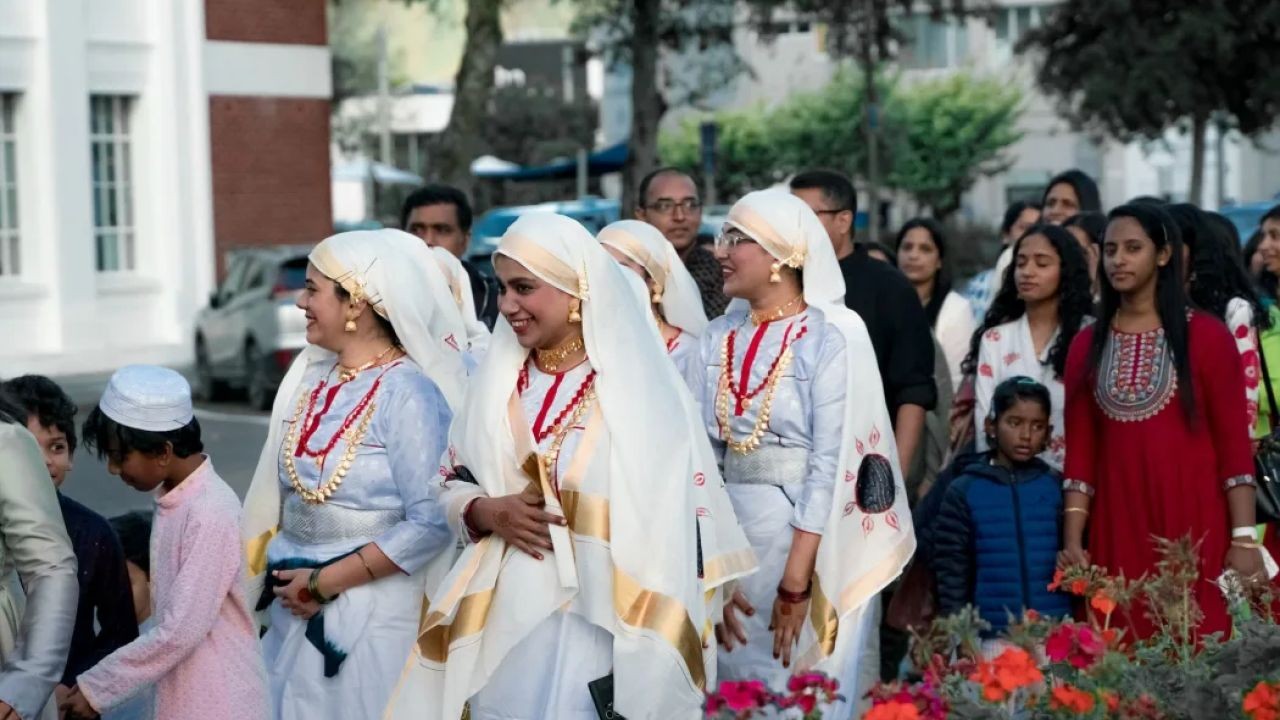In the global arena of sports, New Zealand stands out as a remarkable outlier. With a population of just over five million, this small island nation consistently competes — and wins — against giants like India, the United States, and China, boasting an impressive medal tally relative to its size. How does a country with less than 0.1% of the world’s population produce such world-class athletes, repeatedly outperforming nations with populations hundreds of times larger?
The answer goes beyond talent alone. It lies deeply embedded in New Zealand’s culture, values, and community spirit — a unique blend of resilience, teamwork, humility, and a fierce competitive drive rooted in both Māori heritage and Kiwi identity. This sporting phenomenon not only defines New Zealand’s global reputation but also offers invaluable lessons for industries far beyond the playing field.
In this article, we will explore the fundamental reasons behind New Zealand’s sporting success, uncover the cultural DNA that fuels it, and reveal how these lessons can inspire innovation, technology, and leadership across the nation. By understanding the Kiwi sporting mindset, businesses, educators, and policymakers can harness this competitive spirit to drive excellence in all sectors.
🇳🇿 PART 1: Small Population, Big Impact — The Kiwi Sporting Phenomenon
In the world of elite sports, size doesn’t always matter — and no nation proves this better than New Zealand. With just over 5 million people, this small South Pacific country routinely punches far above its weight on the global stage, especially in the Olympic Games. Whether it’s rowing, rugby, sailing, or shot put, Kiwi athletes consistently bring home medals, often outperforming nations with dozens or even hundreds of times more people.
📊 Population vs Medal Count: The Astonishing Math
Let’s put things into perspective:
| Country | Population (approx) | Olympic Medals (Tokyo 2020) | Medals Per Million People |
|---|---|---|---|
| New Zealand | 5 million | 20 | 4.0 |
| India | 1.4 billion | 7 | 0.005 |
| USA | 331 million | 113 | 0.34 |
| Australia | 25 million | 46 | 1.84 |
| Great Britain | 67 million | 65 | 0.97 |
New Zealand’s 4.0 medals per million people in Tokyo ranks among the world’s highest — far above the U.S., China, or India. This ratio isn't a fluke. It's a trend that has repeated itself across multiple Olympic Games.
But it’s not just about the Olympics. The All Blacks are global legends in rugby. Kiwi sailors dominate in the America’s Cup. The Silver Ferns, Black Ferns, and athletes like Dame Valerie Adams and Lisa Carrington have all made New Zealand a household name in their respective sports.
So the real question is: How can a country smaller than many cities outperform global superpowers?
💡 It’s Not About Size — It’s About Strategy, Identity, and Mindset
This question goes deeper than medal counts. It forces us to examine the unique cultural, institutional, and emotional dynamics that give New Zealand its competitive edge. Is it the Kiwi psyche? The way sport is embedded in national identity? Or something more systemic and strategic?
“You don’t need a billion people to build a winning culture. You need belief, structure, and values. New Zealand’s sporting success is not accidental — it’s built into who we are.”
— Daniel Chyi, Co-founder of Vidude.com
Over the next few sections, we’ll dive into these very foundations — from grassroots systems to cultural norms — and unpack what makes New Zealand such a powerhouse in sports, and why this very DNA can (and should) be translated into innovation, business, education, and tech.
🏉 PART 2: Cultural DNA — Sports as a Core Part of Kiwi Identity
Why does New Zealand consistently produce world-class athletes across so many sports? The answer isn’t just in the training grounds or funding programs — it runs far deeper. Sport is woven into the very identity of what it means to be Kiwi.
From early childhood, across every town and school, to national-level representation, New Zealanders grow up not just playing sport — but living it, breathing it, and understanding it as part of their cultural belonging.
🕰️ Historical Roots: Rugby, Cricket, and the Backbone of NZ Society
Rugby isn’t just a game in New Zealand — it’s a national institution. Since the late 19th century, when rugby was introduced by British settlers, it quickly evolved into a symbol of Kiwi toughness, unity, and identity.
The All Blacks are more than just a team — they are an expression of national character, blending humility, aggression, and pride in equal measure.
Cricket, introduced around the same time, became part of the nation’s slower summer rhythm — but even there, New Zealand has punched above its weight, reaching global finals despite limited resources.
Netball became the unofficial sport of Kiwi girls — producing dominant international teams like the Silver Ferns, who instill pride, grace, and grit in young women nationwide.
Together, these three pillars shaped a sporting nation — one where you’re expected to compete, commit, and contribute, no matter who you are or where you come from.
🏘️ A Deeply Embedded Culture of Participation
What’s remarkable about New Zealand is how accessible sport is:
Nearly every school in the country has structured sports programs, starting from age 5.
Local clubs are affordable and community-run, making sport accessible across income levels.
Weekend games — whether it’s a small-town rugby match or netball game — are social glue for many communities.
According to Sport NZ data, over 70% of young people aged 5–17 participate in sport each week. That's not just healthy — that’s a massive pool of future champions, built from habit and passion, not just elite scouting.
Even more interesting? Many Kiwi athletes stay based in New Zealand, choosing to train at home rather than going abroad. This speaks volumes about the strength of local infrastructure and the cultural belief that home is where greatness is built.
🌀 Māori and Pasifika Influence: Strength, Rhythm, and Competitive Spirit
New Zealand’s sporting culture would be incomplete without acknowledging the influence of Māori and Pasifika traditions — not just in representation, but in philosophy and style.
The haka, performed before All Blacks games, has become a global symbol of mana (pride, power, presence).
Māori concepts like whanaungatanga (relationships), manaakitanga (respect & hospitality), and tūrangawaewae (sense of belonging) are deeply reflected in team culture, both on and off the field.
Many of New Zealand’s elite athletes — from Jonah Lomu to Portia Woodman — have Māori or Pasifika backgrounds, often shaped by a tight-knit family structure, church values, and community support that fuel discipline and drive.
Importantly, Māori values elevate collective success over individual ego — a subtle but vital ingredient in New Zealand’s team-based sporting dominance.
"In New Zealand, sport is not just a pastime. It’s a way we express who we are — grounded, proud, and competitive, yet humble. Māori and Pasifika spirit adds heartbeat and fire to everything we do."
— Daniel Chyi, Co-founder of Vidude.com
🧭 Where This Leads: From Culture to Competitive Advantage
In most countries, sport is an extracurricular activity. In New Zealand, it’s foundational.
This early, values-driven, and inclusive immersion creates not just stronger athletes — but stronger communities, better leadership habits, and a society trained in resilience, fairness, and high performance.
And perhaps most importantly: It proves that a national culture rooted in teamwork and effort can outperform sheer numbers.
🎯 PART 3: The Value of “Hard Yakka” and Humble Excellence
If talent is the seed, then mindset is the soil that makes it grow — and few countries cultivate that better than New Zealand. At the heart of Kiwi sporting dominance is not just ability, but a cultural mindset grounded in resilience, humility, and relentless effort. Locally known as “hard yakka,” this ethos has created a nation of quiet competitors who let their results speak louder than their status.
💪 “Hard Yakka” – More Than Just a Phrase
In New Zealand, “hard yakka” means honest, physical work — the kind that leaves calluses and earns respect. But in sport, it represents something deeper:
A refusal to cut corners.
A drive to do the basics well — every time.
A belief that effort can outpace privilege.
Whether it’s rowing in Lake Karapiro at 5 a.m., grinding out rugby drills in the mud, or returning from an ACL injury without fuss or drama, Kiwi athletes embrace the grind. This mindset starts young, reinforced by coaches, parents, and teammates, and creates athletes who don’t rely on hype — just results.
🧠 No. 8 Wire Thinking: Ingenuity Under Pressure
One of New Zealand’s most unique cultural traits is the legendary “No. 8 wire mentality” — a reference to the humble fencing wire farmers used to fix just about anything. It’s become a national symbol of:
Resourcefulness
Innovation
Practical problem-solving
In sport, this shows up in subtle but powerful ways:
Training smarter with less: NZ coaches often build elite systems using modest budgets — from cycling in wind tunnels made in sheds, to makeshift rowing simulators.
Finding unorthodox pathways: Many Kiwi athletes play multiple sports growing up (instead of early specialization), giving them a broader athletic IQ and resilience.
Turning setbacks into fuel: Think of athletes like Valerie Adams (Olympic shot-putter) or Richie McCaw (All Blacks captain), who consistently turned obstacles into comebacks.
This resourcefulness becomes mental toughness, and it’s a big reason why New Zealand’s athletes often outperform those from countries with ten times the budget.
🤝 Humble Excellence: Compete Like You’ve Been There Before
Another hallmark of Kiwi sports culture is modesty in victory and grace in defeat. Unlike some nations where victory is celebrated with showmanship or ego, New Zealand champions tend to underplay their wins and uplift their team.
The All Blacks often speak about “earning the jersey” — a reminder that you represent more than yourself.
Kiwi Olympians thank their coaches, clubs, and family before talking about medals.
There’s a cultural suspicion of arrogance — it’s the work that should be loud, not the mouth.
This culture produces athletes with both the edge and the humility to keep improving — a rare balance in elite competition.
“We don’t chase headlines. We chase performance, legacy, and purpose. That’s why when Kiwis win, the whole country feels like it belongs to the moment — not just the athlete.”
— Daniel Chyi, Co-founder of Vidude.com
🌱 Broader Lesson: What Other Industries Can Learn
This mindset isn’t limited to sport. It can inspire other sectors in New Zealand and globally, especially in:
Tech startups: Build smart with fewer resources. Stay grounded. Solve real problems.
Education: Reward grit and growth, not just test scores.
Leadership: Encourage quiet confidence, not performative leadership.
In a world obsessed with scale and spectacle, New Zealand proves that a culture of hard yakka and humble excellence can quietly outperform billion-dollar machines.
👩🏫 PART 4: Development Pathways and Grassroots Support — Building Champions from the Ground Up
New Zealand’s sporting success isn’t a fluke. It’s the result of a well-connected ecosystem that begins at the playground and reaches all the way to the podium. What sets the Kiwi system apart is not just the presence of talent, but how consistently it’s identified, nurtured, and elevated — without losing its community soul.
Let’s explore how a country of 5 million builds world-class athletes with precision, passion, and purpose.
🏫 Structured Talent Pipelines – From School Fields to National Squads
Unlike larger nations where young talent can get lost in the system, New Zealand’s size becomes its strength. The pathways from early exposure to elite development are streamlined, visible, and often community-led.
Primary and secondary schools integrate sports deeply into daily life. Participation is high, and values like teamwork, fairness, and competition are nurtured early.
College Sport NZ and regional competitions like the First XV rugby leagues act as incubators for scouting raw talent.
National sporting bodies like High Performance Sport New Zealand (HPSNZ) actively track and support promising athletes from a young age, with tailored support in nutrition, psychology, and performance science.
There is a clear pipeline for most major sports, with elite development centers, international exposure programs, and support systems for transition phases (e.g., from junior to senior level).
🏘️ Role of Local Clubs and Communities
Local clubs are the beating heart of Kiwi sports. From netball in Rotorua to rowing on the Waikato River, communities take ownership of sporting development:
Most Olympic medallists still train or mentor in their original hometown clubs.
Volunteer coaches and parents often drive entire programs, especially in rural and regional areas.
These clubs aren’t just talent machines — they are social anchors where children learn discipline, leadership, and identity.
This bottom-up model creates a stronger sense of belonging, pride, and responsibility. Athletes are not just performing for themselves, but for whānau, iwi, school, and town.
🏟️ Facilities and Funding — Access Over Excess
While New Zealand lacks mega-stadiums or billion-dollar sports campuses, it wins by maximizing access and investing in people before prestige.
Government-backed programs like Sport New Zealand focus on participation, equity, and development at all levels.
There is a growing emphasis on providing accessible facilities across rural and underserved communities, ensuring no region is left behind.
Public-private partnerships, such as those with NZ Rugby or Cycling NZ, help create world-class high-performance hubs without losing local connection.
The philosophy is simple: every Kiwi child deserves the chance to discover their potential, regardless of where they start.
“In New Zealand, we don’t just build athletes — we build humans of character, rooted in their community and driven by pride. That’s why our sporting pipeline works. It’s not elite-first, it’s people-first.”
— Daniel Chyi, Co-founder of Vidude.com
💡 What Other Sectors Can Learn
This model has relevance far beyond sports. The way New Zealand develops athletes offers a blueprint for innovation and talent development in tech, education, and entrepreneurship:
Clear growth pathways: Define how young talent progresses, with support at every stage.
Community-driven ecosystems: Create environments where mentors and peers play active roles.
Access before excellence: Remove barriers early so true talent can emerge.
Countries and companies alike can build better pipelines by focusing not just on output, but on shared ownership and inclusive opportunity.
🤝 PART 5: Strong National Cohesion and Sporting Spirit — The Invisible Advantage Driving Kiwi Excellence
New Zealand’s dominance in global sports isn’t just about skill, fitness, or coaching. It’s also about something harder to measure but impossible to ignore: cohesion.
While larger nations often struggle with fragmentation across class, region, or language, New Zealand punches above its weight because of a shared national spirit — one that unites small towns and big cities, Māori and Pākehā, new migrants and old-school Kiwis. This invisible glue creates the emotional fuel that turns athletes into legends.
🇳🇿 Pride in the Jersey — The Power of Collective Identity
Ask any Kiwi Olympian, rower, or rugby player what it means to wear the silver fern — and their eyes light up. Representing New Zealand is personal, communal, and sacred.
The All Blacks don’t just play rugby — they embody national character: humble, fierce, and respectful.
Even in less spotlighted sports like kayaking, sailing, and equestrian, athletes often talk about “not letting the country down.”
National cohesion amplifies purpose. With only 5 million citizens, every athlete feels the weight and support of the nation behind them — not just in medals, but in how they represent Kiwi values.
This emotional ownership translates to higher commitment, fewer ego battles, and a greater willingness to work as a team, especially under pressure.
🪶 Māori Concepts of Mana and Whānau – Fueling Individual and Collective Excellence
In Māori culture, mana (prestige, power, authority) is something earned through one’s actions — and it is inextricably tied to community and ancestry. You don’t compete for yourself; you do it to uplift your whānau (family), hapū (sub-tribe), and iwi (tribe).
This cultural framework naturally aligns with elite sports performance:
Māori and Pasifika athletes draw deep strength from representing more than just a name — but a legacy.
The concept of “mahi tahi” (working together) echoes in how Kiwi teams play: selflessly, with shared responsibility and heart.
Rituals like the haka aren’t just performances — they are spiritual affirmations of identity, purpose, and unity.
This cultural depth is rare globally. In many larger nations, athletes represent bureaucratic bodies. In Aotearoa, they represent their people — and that hits different.
🌍 The Problem with Fragmentation: What Larger Nations Can’t Replicate
In contrast, many larger countries face:
Internal divisions (region, class, ethnicity) that dilute national loyalty.
Over-commercialization, where athletes are more brand than citizen.
Weaker school-to-sport links, making sports an elite-only or urban pursuit.
Even with more money and infrastructure, these nations often lack a shared emotional engine — the kind that keeps athletes grounded, driven, and united.
“Kiwi athletes don’t compete just to win. They compete because they carry the story of a country, of a people. And when that pride is genuine, it gives you 10% more — in sport, and in life.”
— Daniel Chyi, Co-founder of Vidude.com
💡 Lessons for Other Sectors
This same spirit of cohesion and identity can supercharge performance in any industry:
Startups that bond around shared national or local identity often out-hustle better-funded rivals.
Schools and universities that ground students in cultural pride can spark greater resilience and ambition.
Companies with strong internal cultures tied to purpose (not just profit) attract and retain top talent.
In short, cohesion outperforms scale — every time.
🚀 PART 6: Translating Sportsmanship Lessons to Tech and Innovation — How Kiwi Grit Wins Off the Field
New Zealand’s remarkable sporting legacy isn’t just something to be admired — it’s a blueprint. The same values, behaviors, and mental frameworks that create world-class athletes can also power world-class entrepreneurs, technologists, and innovators.
In a world where big countries often dominate headlines, New Zealand’s sporting success offers a powerful counter-narrative: you don’t need scale to succeed — you need substance.
🧠 Grit, Teamwork, and Iterative Problem-Solving — Sports Values that Build Startups
Tech startups and elite sports may seem worlds apart — but they share a key reality: performance under pressure.
What sports teach that applies directly to innovation:
Grit: New Zealanders are trained from school-level sports to persist through hardship. This carries over into startup culture, where endurance often wins.
Team-first mindset: Kiwi athletes prioritize team harmony over personal glory. That attitude creates healthier, more adaptable startup teams.
Iterative improvement: Like athletes fine-tuning form, Kiwi founders tend to approach problems with “trial, feedback, refine” — not entitlement, but effort.
This sports-influenced mindset becomes especially important in a startup ecosystem where resources are limited and global competition is fierce.
🧬 From Field to Foundry — Kiwi Innovations Shaped by Sporting Culture
Some of New Zealand’s most promising ventures show how the sporting mindset influences success in business:
Allbirds: Co-founded by former All Whites soccer player Tim Brown. Simplicity, humility, and sustainability — all values echoed in Kiwi sports culture — are embedded in the brand.
Performance Lab Technologies and Zephyr Technology: Born from New Zealand’s sports science research, now delivering elite biometric monitoring tech globally.
Rocket Lab: Though in aerospace, Rocket Lab founder Peter Beck famously drew from Kiwi “No. 8 wire” pragmatism — a hallmark of sports ingenuity — to challenge giants like SpaceX.
These aren’t just companies. They’re cultural exports powered by identity, resilience, and self-belief — just like Kiwi athletes.
🔎 The Kiwi Edge — When Small Means Smart
In tech, just like in sport:
Being small means being nimble.
Being underdog means being hungrier.
Having a strong national identity means aligning around purpose.
This enables New Zealanders to consistently “punch above their weight” in global rankings — from SaaS platforms to biotech, clean energy to video gaming.
In fact, some of the most exciting future unicorns may not come from Silicon Valley — but from the same nation that birthed the All Blacks, Dame Valerie Adams, and Lydia Ko.
“If you study the way our athletes train, fail, regroup, and win — that’s the roadmap for Kiwi entrepreneurs too. Our advantage isn’t size. It’s character.”
— Daniel Chyi, Co-founder of Vidude.com
🌍 Inspiration Beyond Borders
This message is not just for New Zealand:
India, Brazil, and other populous nations can learn from this values-based approach to excellence.
Rather than copying Silicon Valley’s playbook, nations can develop innovation cultures rooted in their own strengths, just as NZ did with sport.
The discipline of sport — constant improvement, unity under pressure, respect for the process — is universally applicable in any industry or nation.
🧩 PART 7: What Other Countries Can Learn from New Zealand — A Blueprint for Excellence Beyond Size
When a nation of just over 5 million consistently outperforms global giants in international sport, it’s no longer just an anomaly — it’s a case study.
New Zealand’s sporting success isn’t about raw talent or luck. It’s the result of deep cultural choices, tight community bonds, and a commitment to values that scale quality over quantity. And these are exactly the lessons that larger, more fragmented nations can apply across sport, business, and innovation.
🎯 1. Focus on Quality, Not Quantity
In high-population countries, the temptation is to rely on numbers. “More people means more talent,” the logic goes. But New Zealand flips that assumption.
What NZ does differently:
Individualized talent development: Promising athletes are nurtured early with personalized coaching, not lost in bureaucratic systems.
Long-term growth over short-term results: NZ invests in pathways, not just tournaments.
Holistic success metrics: A focus on character, leadership, and teamwork — not just medals or money.
✅ Lesson for the world: Smarter systems beat bigger populations.
🧩 2. Community Cohesion Is a Competitive Advantage
New Zealand's size isn't a liability — it's a strategic asset. Everyone knows everyone, from the rugby field to the boardroom, and that creates a high-trust environment.
How this helps:
Rapid knowledge transfer: Coaches, athletes, and clubs share ideas more openly.
Low ego, high unity: Kiwis prefer team success over individual fame.
Māori and Pasifika inclusion: These communities enrich NZ’s cultural fabric, adding strength, rhythm, and identity to its sporting edge.
In Māori culture, the idea of mana (dignity, strength, and respect) is earned not through domination, but through service, courage, and excellence — values that align perfectly with elite sport.
✅ Lesson for the world: Invest in cohesion — not control. Diversity, when respected, becomes strength.
🇳🇿 3. National Pride as Fuel — Not Pressure
Kiwis compete for their country, not because of it.
There’s a subtle but crucial difference here:
In some nations, sport is an obligation tied to national ego.
In New Zealand, it’s a shared expression of identity, pride, and joy.
Whether it’s wearing the silver fern or the black jersey, New Zealand athletes consistently channel national pride into performance — not pressure.
This healthy pride comes from:
Consistent storytelling around shared national values.
Role models who are humble, human, and relatable.
Cross-generational inspiration, from Sir Edmund Hillary to Lydia Ko.
“New Zealand proves that pride rooted in values is far more powerful than pride rooted in fear or hierarchy.”
— Daniel Chyi, Co-founder of Vidude.com
✅ Lesson for the world: Build nations where people want to represent, not escape.
🔁 A Model That Translates
This isn't just about Olympic medals. These same principles can transform education, business, tech, and governance:
| Principle | In Sport | In Other Fields |
|---|---|---|
| Quality over Quantity | Talent-focused coaching | High-quality startups, not unicorn chasing |
| Cohesion over Competition | Unified teams, cultural respect | Collaborative innovation ecosystems |
| Pride through Values | Authentic motivation | Purpose-driven leadership |
🌏 Final Takeaway
Big countries often look to each other for models of success — but it’s time they looked to New Zealand.
Because in a noisy, chaotic world, the Kiwi way proves that clarity, community, and character are what truly create world-class outcomes.
💬 PART 8: Voices from the Field — Athletes and Coaches Reflect on the Kiwi Edge
To understand why New Zealand punches so far above its weight in global sport, we must go straight to the source — the athletes, coaches, and sports scientists who live and breathe Kiwi excellence.
Their voices reveal not just training methods or performance hacks, but a deep cultural mindset that permeates everything from rugby pitches to research labs, and even tech startups.
🗣️ “It’s not about being the best in the world. It’s about being the best for the world.”
— Lisa Carrington, Olympic Champion, Canoe Sprint
Lisa Carrington is the epitome of sustained Kiwi excellence — five Olympic medals, including three golds. But what stands out most is her grounded humility.
“We don’t carry the weight of a billion people’s expectations. We carry the pride of a small nation that backs us hard. That lets us focus. That keeps it simple.”
Her approach reflects a uniquely New Zealand trait: calm focus over chaotic pressure — a mindset that is incredibly transferable to tech, science, and education.
🧠 “New Zealand athletes are trained to be decision-makers, not just performers.”
— Dr. Craig Harrison, Youth Sport Scientist and Mentor
Dr. Harrison works closely with young Kiwi athletes through High Performance Sport NZ and other pathways. His research shows that:
Kiwi systems prioritize autonomy, resilience, and mental ownership.
Kids are taught early to analyze, adapt, and improve — not just follow orders.
“This builds innovators, not just athletes. They learn to respond to pressure with clarity, not compliance.”
✅ Cross-industry relevance: This same thinking drives agile teams in tech, entrepreneurship, and next-gen leadership.
💪 “Hard work isn’t glorified here — it’s expected.”
— Dame Valerie Adams, Two-time Olympic Gold Medallist, Shot Put
Raised in a tight-knit family with Tongan roots, Dame Valerie attributes her success to discipline, service, and mana.
“We train in the rain, the cold, the wind. You grind in silence and win with grace. That’s just how it’s done in Aotearoa.”
What she describes is not just athletic preparation — it’s a cultural standard: put in the “hard yakka,” and let the results speak.
✅ This applies perfectly to New Zealand's startup scene, where lean teams innovate fiercely with few resources, and no fuss.
🧭 “Coaching in New Zealand is 50% skill, 50% values.”
— Wayne Smith, former All Blacks coach, 2x Rugby World Cup winner
Wayne Smith — one of the minds behind NZ’s rugby dominance — believes sport is a character lab as much as a performance space.
“We coach integrity. We coach accountability. You don’t just build players, you build men and women who serve something bigger than themselves.”
In tech or corporate leadership, the equivalent would be mission-led teams — where people don’t just clock in, but believe in what they’re building.
✅ Leadership lesson: Culture eats strategy for breakfast — and New Zealand coaches understand this deeply.
🔬 “Every marginal gain matters — but mindset is everything.”
— Kereyn Smith, former CEO, New Zealand Olympic Committee
Kereyn Smith oversaw some of New Zealand’s most successful Olympic cycles. For her, resilience and values-based leadership are non-negotiable.
“Our size forces us to be smarter. But it’s our values — inclusiveness, grit, integrity — that make us dangerous on the world stage.”
✅ Translation to business: Global impact isn’t about scale — it’s about systems + soul.
📣 Common Threads from the Field:
Across all these reflections, certain themes emerge powerfully:
| Kiwi Trait | Sports Expression | Transferable Insight |
|---|---|---|
| Humility & Grit | Quiet confidence, consistent effort | Leadership and entrepreneurship |
| Autonomy & Adaptability | Smart decision-making in real time | Agile product development and tech teams |
| Purpose over Pressure | Representing values, not ego | Mission-led careers and policy innovation |
| Mana & Community | Competing with honor and respect | Diversity, inclusion, and cultural strength |
🌏 Final Thought from Daniel Chyi, Vidude.com Co-founder:
“The most inspiring thing about Kiwi sports culture is that it doesn’t try to dominate. It tries to earn respect. That mindset could change how entire industries approach success.”
📉 PART 9: Pitfalls and Challenges NZ Faces in Maintaining This Edge
New Zealand’s global sporting success is often praised as a miracle of cultural grit and national focus. But even miracles require maintenance. While the world marvels at Kiwi overperformance, few see the structural cracks, emerging risks, and silent pressures threatening this delicate edge.
To stay ahead, Aotearoa must confront hard truths — including complacency, funding bottlenecks, burnout, and brain drain — before they undercut future generations of athletes, leaders, and innovators.
⚠️ 1. Complacency Is the Enemy of Consistency
When a small nation wins big, it’s easy to rest on reputation. But past success can breed future fragility.
Rugby remains dominant, but other sports (e.g., athletics, swimming, basketball) often lack investment and visibility.
Grassroots energy is high, but without strategic renewal, systems age out and lose relevance.
"We must constantly re-earn our edge. Being proud is good — being proactive is better."
— Rob Waddell, former NZ Olympic Chef de Mission
✅ Lesson: Excellence needs reinvention. What worked in 2015 won’t work in 2030 without adaptation.
💰 2. Funding Shortfalls: Excellence Isn’t Cheap
New Zealand's high-performance sports system is admired globally — but underfunded by global standards.
Countries like Australia, UK, and even Canada invest more per elite athlete.
Private sponsorship in NZ remains niche, heavily reliant on rugby or one-off Olympic spikes.
📉 Consequences:
Promising athletes in non-glamorous sports must self-fund training or work side jobs.
Sports like gymnastics, rowing, and weightlifting risk losing talent due to financial constraints.
"We can't expect world-class results on a community-class budget forever."
— Kereyn Smith, former CEO, NZ Olympic Committee
🧠 3. Youth Burnout and Mental Pressure
Behind the medals lie untold stories of burnout and stress — especially among younger athletes.
Early specialization and travel demands can disrupt education, mental health, and identity.
Without strong pastoral care, even top talents quit early, disillusioned or injured.
🧠 The rise in youth anxiety and performance fatigue (even in school sports) is now a red flag:
Coaches and parents pushing too hard, too soon.
A lack of balance between winning and wellbeing.
“If sport becomes a pressure cooker, we’ve lost the soul of why we do it.”
— Dr. Craig Harrison, youth sports researcher
✅ Solution: Re-center development around values, joy, and long-term growth — not just podiums.
🌍 4. Talent Drain and Global Poaching
In a connected world, talented Kiwis are often lured offshore by better funding, facilities, or competition.
Athletics, cycling, and even e-sports see rising numbers of athletes shifting to Australia, the U.S., or Europe.
Once gone, it’s hard to bring them back — especially when other countries offer career pathways NZ can’t match.
🔍 This brain (and brawn) drain is not just a sports issue. It’s a national capacity issue across tech, science, and the arts.
“We invest early, but lose too many stars at the elite edge. Retention is now just as important as recruitment.”
— Grant Robertson, former NZ Minister for Sport
🧭 Summary Table — The Risks Ahead
| Challenge | Impact on Sport | Broader Implications |
|---|---|---|
| Complacency | System stagnation, loss of relevance | Loss of innovation in other fields |
| Underfunding | Training gaps, limited global prep | Lowered global competitiveness |
| Youth burnout | Shortened careers, talent loss | Mental health pressure on youth |
| Talent poaching | Investment lost overseas | National skill shortage |
🔄 Final Reflection
New Zealand’s sporting greatness is no accident — but it’s also not invincible.
The same factors that helped Aotearoa rise — humility, hard yakka, community pride — must now evolve into a proactive strategy to protect and amplify that success.
“Great cultures don’t just produce winners — they protect the soil that grows them.”
🎯 PART 10: Call to Action — Strengthening NZ’s Competitive Edge Across Sectors
New Zealand’s remarkable global sporting success isn’t just a feel-good story — it’s a national blueprint for excellence. This tiny country, with just over 5 million people, has consistently punched above its weight in the world’s most competitive arenas. The lessons behind that success go far beyond sports.
Now is the moment to codify, expand, and apply these values — not only to protect New Zealand’s edge in athletics but to scale this spirit across tech, business, education, and innovation.
🇳🇿 What We’re Protecting — And Why It Matters
New Zealand’s Olympic golds and World Cup trophies reflect something deeper:
A shared national identity rooted in hard work, humility, and honor.
A tight-knit culture of teamwork and trust.
A resilience-first mindset that thrives under pressure and adapts creatively.
If Aotearoa can win on the field with those values, it can lead the world in industries that require grit, collaboration, and agility.
📜 Policy Recommendations to Sustain and Scale the Kiwi Edge
1. Protect and Expand Grassroots Talent Systems
Funding Boost: Ensure long-term investment in school, club, and regional sports — beyond traditional powerhouses like rugby.
Talent Pipelines: Create clearer development pathways for underrepresented sports and athletes.
Equity Access: Ensure rural, Māori, and Pasifika communities have equal access to coaching and facilities.
🎯 Why it matters: Great nations aren’t built from elite programs — they grow from grassroots energy and inclusion.
2. Integrate Sporting Mindsets into National Education
Embed values like grit, resilience, teamwork, and wellbeing into NZ’s education curriculum — from primary school upward.
Fund partnerships between schools and sports psychologists, athlete mentors, and motivational speakers.
Celebrate character-based success stories in both academia and athletics.
🎯 Why it matters: The same mindset that builds Olympians also builds world-class engineers, founders, and teachers.
3. Strengthen High-Performance Infrastructure
Support high-performance sports institutes and cross-functional training hubs.
Encourage data science, recovery tech, nutrition, and AI innovation through sport-tech partnerships.
Create “Innovation-Through-Sport” research funds linking universities, startups, and athletic performance labs.
🎯 Why it matters: Countries that win in sport are often first to experiment, prototype, and iterate faster — a huge edge in global tech and business.
4. Cross-Sector Collaboration: From Field to Founders
Launch national programs pairing elite athletes with startup founders to share insights on discipline, leadership, and pressure management.
Promote sports-to-career pipelines, helping retired athletes transition into roles in tech, policy, and public speaking.
Encourage dual career development (e.g., sport + STEM) through scholarships and employer partnerships.
🎯 Why it matters: Athletes and entrepreneurs face the same reality — high pressure, limited time, uncertain outcomes, and global competition.
5. Reinforce National Pride and Shared Vision
Use sporting events as platforms to reaffirm shared values — like humility, grit, fairness, and whanaungatanga (kinship).
Celebrate local heroes, not just for winning, but for representing character and community.
Promote media campaigns that highlight how Kiwi values succeed globally — not just in sport, but in startups, science, and service.
🎯 Why it matters: National cohesion creates momentum. A country united around values performs better — on every field.
🧠 Lessons for Other Nations and Sectors
New Zealand’s story proves that:
You don’t need a billion people to be world-class.
You don’t need to outspend — just out-grit, out-care, and out-collaborate.
You can lead by being relentlessly values-driven, not just results-driven.
“Excellence isn’t about size — it’s about mindset. Sport just happens to be where New Zealand made that mindset visible to the world. Now let’s apply it everywhere.”
— Daniel Chyi, Co-founder of Vidude.com
✅ Final Takeaway: The Kiwi Competitive Code
Here’s what every sector — from government to innovation hubs — should remember:
| Kiwi Principle | Sports Example | Cross-Sector Application |
|---|---|---|
| Hard Yakka | All Blacks training ethos | Startup hustle, founder resilience |
| Team First | Rowing crews, netball teams | Agile software teams, cross-functional orgs |
| Community Roots | School rugby, waka ama | Local SMEs, grassroots entrepreneurship |
| Humble Excellence | Lisa Carrington, Eliza McCartney | Quiet leaders in science, business |
| Mana + Identity | Māori warriors and haka | Brand storytelling, leadership culture |
🚀 Next Step: Who Will Carry the Torch?
New Zealand has already inspired the world with its athletic spirit. The question is — can it now inspire the next generation of inventors, engineers, educators, and artists with the same sporting heart?
This is not just a call to celebrate, but a call to build, fund, and share the Kiwi code with the world.
Related Long-Tail Keywords for SEO:
why New Zealand excels in sports
Kiwi sports success vs global countries
Olympic medals per capita New Zealand
small country high performance sports
grassroots sports development NZ
how Kiwi sports mindset boosts innovation
cross-sector collaboration New Zealand
Kiwi startup culture and teamwork
Māori influence in sports performance
sports-inspired leadership models
Conclusion
New Zealand’s extraordinary success in sports is no accident — it is the outcome of a deeply ingrained national character that values hard work, collective pride, and relentless resilience. This “Kiwi Code” has enabled a small country to punch well above its weight on the global stage, proving that size and resources are not the sole determinants of greatness.
The lessons from Kiwi sportsmanship extend far beyond stadiums and arenas. They provide a blueprint for fostering innovation, nurturing talent, and building cohesive communities in tech, education, business, and beyond. By embracing the principles of grit, teamwork, and humility, New Zealand can continue to excel not only in winning medals but also in shaping a prosperous, resilient future for all.
As New Zealand looks ahead, the challenge is clear: to protect these values, invest in grassroots development, and translate the sporting spirit into broader national success. If the world can learn from Kiwi athletes, then New Zealand itself can inspire generations of leaders — in sport, innovation, and society alike.































